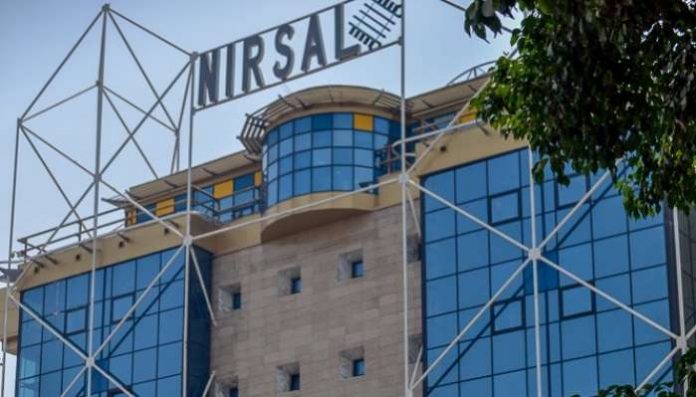By Francis Ewherido
The Corona Virus (COVID-19) is one visitor that is not in a hurry to depart. It has taken up residence on mother earth at least for now. The lockdown that was imposed when the virus hit our shores is being gradually lifted. Another lockdown is unlikely and not even sensible because it will not bring an end to COVID-19; only a cure would. So we have to learn to live with it.
Learning to live with COVID-19 leaves us with some tough choices. The brief period we were on lockdown has opened the eyes of many people to how quickly cash reserves can be depleted if you are not adding to it. So, many of us must go out there to earn a living. That increases our exposure to the virus. We need to observe all safety precautions: using of face masks, regular washing of hands, sanitising of hands and social distancing, among others. But there is still no absolute guarantee that those who take these precautions will not be infected. The precautions only reduce the probability of getting infected. Also, it has become very obvious that we are a very social and communal people, so social distancing is among the least observed precautions. This poses a clear and present danger.
COVID-19 has changed the way people live and earn a living. Very soon, people who do not adapt are going to ask , “Who Moved My Cheese.” I tried to set up a meeting with a potential client. The way he reacted on the other side of the phone, you would think he was jumping to avoid a snake bite. People who did not like virtual meetings have to adjust.
It is the way of the future for now. Some of these virtual meeting platforms are comparatively new, but they are not as technical as people assume. The problem is more of adaptation. As John Maynard Keyne rightly observed, “the difficulty lies not in new ideas, but escaping the old ones, which penetrate every corner of our minds.”
But embracing new ideas we must. There is a book, one of my brothers gave to me about five years. It is one of many books I had not gotten around to read. But I added it among the books to read during the lockdown. It is called Strategic Learning and the author is Willie Pietersen, a South African-born Professor at Columbia University in America. Though it was published 10 years ago, it is actually tailored for a VUCA (Volatile, Uncertain, Complex and Ambiguous) environment like the COVID-19’s. The book seeks to clarify VUCA environments and how businesses should respond to it. But the contents can be applied to all facets of life. After all, business is about people (customers, employees, shareholders, government regulators, etc).
The book deals with building adaptive organisations (you can substitute people for organisation). It talks about the “ingrained ability to make sense of the changing environment, and rapidly translate insights into action. This involves learning, strategy creation, focus, alignment and execution
It explains leadership, for which there are trailer-loads of literature, in a few sentences: intrapersonal leadership (leadership of self), strategic leadership (leadership of an organisation) and interpersonal leadership (leadership of others). All these congregate to integrated leadership, which is what leadership (family, business, club, church, etc.) is all about. Defect in one affects the sum total.
Today, we are confronted with information from many sources competing for our limited time and attention, but Pietersen rightly declares that, “no longer does the world belong to the ones with the most information, but to those with the highest ability to make sense of it; no longer to those who know more, but to those who understand better.” For me, no statement has put it more succinctly than Pietersen’s that we have left information age for the conceptual age. Information is good, making sense of the information is better.
Before I leave, Pietersen, I want to deal with strategy, a word which we use all the time and apply willy-nilly. No matter how much resources we have, it remains scarce in relative to our needs and wants, and we are in a competitive world! So in applying our limited resources, we have to make choices to ensure we trump competition. These choices ought not to be haphazard, but be measured; that is what strategy is about. We are talking business here, but it is the same scenario, we face in other aspects of our lives. At times like this with increasing competition and limited resources, our choices need to be measured.
Right now, the body language of the government tends towards reopening the economy and normalising the situation. Soon travel ban will be lifted. Are you going to sit in one place for fear of COVID-19, or you will take necessary precautions and go about your business and your life? Schools will also be opened at some point. Children are children and not adults. It is difficult to expect the highest standard of precaution that COVID-19 demands from children. So are you going to continue keeping your children at home until COVID-19 is gone or you will gamble by letting them resume school? Whatever choice you make has implications: if they go to school, they risk being exposed to and getting infected with Corona Virus. If you keep them at home, for how long? The virus might be around for two years, as some experts are predicting. A child kept way from school for too long can develop complications in character and learning.
I believe children should go back when the authorities consider it safe enough, but armed with all the safety precautions, both physical and mental. The safety measures must become a habit. After prayers in my house every day, we usually exchange peace and love of Christ in form of a handshake. Immediately after, my children will head for the sanitizer. I usually scream that “who in this house has Corona Virus that’s going to infect you?” No more shouting, I will even encourage them now so that sanitising will be ingrained before schools resume.
Keeping safe (face masks, sanitisers, soap, etc.) is expensive. Some people will not be able to provide the safety items for their children when schools resume. So what happens? The government should provide students in public schools with these items, while the private schools should come to some kind of agreement with parents of their pupils.
For me, life has fully resumed. Life must go on. Adaptation is what we need. Take all necessary precautions and this includes boosting your immune system. In those days, when tax collectors came to villages to collect taxes, the men ran into the bush. So my people came up with a proverb that “osho r’osaruyovwi sa djevw’omoshare vwie-e” (the fear of paying taxes cannot scare me from having male children” – these male children would grow up to be confronted with taxes) The same way the fear of COVID-19 cannot stop us from living our lives. For those of us who believe in God, may God look upon our imperfect efforts, perfect them and crown them with success. Amen.






